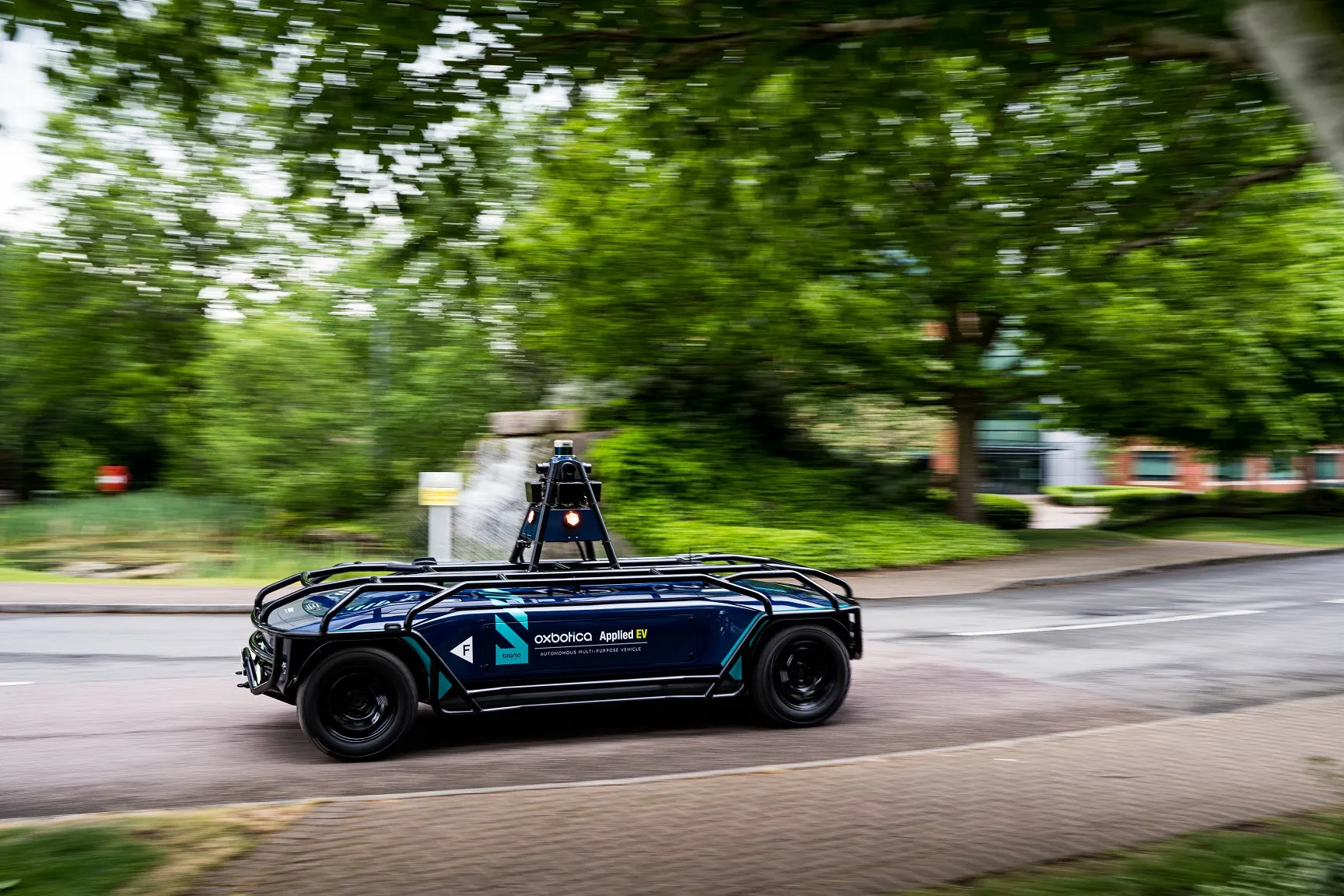
Oxbotica says it has completed the first deployment of a zero-occupancy, fully-autonomous electric vehicle on publicly-accessible roads in Europe.
The all-electric AppliedEV is operating in Oxford, UK, with no on-board driver.
It uses Oxbotica Driver, which employs a combination of radar vision and laser-based sensors to provide the vehicle with an understanding of its surroundings, with artificial intelligence "continuously checking and explaining decisions".
The first public on-road business deployment with Ocado Group is expected to be 2023, when the vehicle is expected to deliver customers' goods.
Oxbotica says it "will also now accelerate commercial deployment of autonomous vehicles globally", working with partners such as ZF, BP and Nevs.
“Our goal is to be indistinguishable from perfect on safety, and this achievement alongside our partners is proof of that," says Paul Newman, Oxbotica founder & CTO.
The firm said the trial was conducted in line with the UK Code of Practice 2019, BSI PAS 1881:2020 and PAS 1883:2020 and follows two years of development and safety testing.
An insurance programme tailored specifically for the risks associated with L4 autonomy on open roads was arranged by broker Marsh and created by Apollo Group’s Ibott initiative through its MGA in partnership in the UK with insurer Aioi Nissay Dowa Europe.
"This is a fantastic milestone and we are delighted to see Oxbotica making significant progress towards zero-occupancy goods deliveries,"
said Alex Harvey, chief of advanced technology at Ocado Technology.
"We continue to collaborate closely with Oxbotica and are excited about providing this transformational capability to Ocado Smart Platform partners at the earliest possible opportunity."
Gavin Jackson, Oxbotica CEO, said AV development is a "hyper-growth technology category".
"Autonomous vehicles will create billions of pounds in new revenues and generate thousands of high-skilled jobs, while helping cities and businesses meet their targets for carbon reductions," he concluded.
"Our zero-occupancy, all-electric, fully autonomous prototype is exactly the new-type vehicle that will form the mainstay of the transportation industry for decades to come.”








